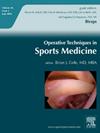Use of Allogeneic Mesenchymal Signaling Cells (MSCs) to Augment Cartilage Repair
Abstract
Preserving articular cartilage extends the life span and functional capabilities of a joint, and prevents early joint arthroplasty. Mesenchymal signaling cells (MSCs) induce chondrocytes and stimulate the innate capacity to regenerate and restore damaged cartilage. Preserving the pericellular matrix of chondrocytes boosts the ability of MSC to stimulate chondrocytes. The ability to augment joint homeostasis and induce cartilage regeneration with the use of allogenic MSCs unlocks the possibility of a single stage cell based surgical therapy for medium to large cartilage defects. The results of cell therapy with recycled autologous chondrons mixed with allogeneic (bone-marrow or adipose derived) mesenchymal signaling cells (IMPACT/RECLAIM) after 7 years have supported the safety and clinical efficacy of this treatment. Patients have shown clinically relevant and statistically significant improvement in multiple validated patient reported outcome measures for knee pain and quality of life. Once fully industrialized the single stage approach, compared to conventional 2 stage procedures, should also provide a more economical and logistically friendly treatment option. Low failure rates and similar results compared to the current golden standard reinforce the longevity of this proof of concept. The phase III randomized controlled trial comparing results of the treatment after a non-surgical approach will conclude in 2024. As for now, research supports this unique first in man one stage cartilage repair to be safe, feasible, and have good clinical outcomes when combining recycled cartilage with allogeneic MSCs.

 求助内容:
求助内容: 应助结果提醒方式:
应助结果提醒方式:


